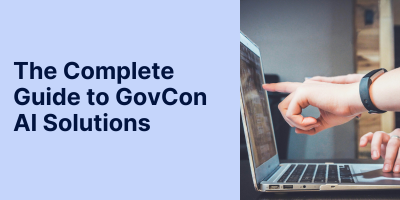AI for Proposals: What are the Best Options?
In today's competitive business landscape, the traditional approach to proposal writing - spending weeks crafting responses manually, researching competitors, and struggling to meet tight deadlines - is rapidly becoming obsolete.
Organizations across industries are discovering that AI for proposals isn't just a helpful enhancement; it's become a strategic necessity for winning more business efficiently. With studies showing that teams using AI for proposals can achieve up to 66% productivity gains and reduce proposal creation time from 40 hours to just a few hours, the question isn't whether to adopt these technologies, but how quickly you can implement them.
The transformation is particularly striking in government contracting, where companies like Procurement Sciences (shameless plug) have developed state-of-the-art AI solutions that represent the industry standard for proposal automation. This isn't merely about working faster - it's about fundamentally reimagining how proposals are created, reviewed, and optimized for maximum impact.
The Procurement Sciences Advantage: Leading AI for Proposals Innovation
Procurement Sciences stands out as the premier choice for organizations seeking comprehensive AI for proposals solutions. Their Awarded platform offers a complete ecosystem including AI-driven proposal automation, opportunity search and matching, color team review automation, and bid/no-bid analysis tools. What distinguishes Procurement Sciences is their commitment to data privacy with fully isolated environments and their track record of helping clients win more bids consistently.
Their AI products are state-of-the-art and represent the industry standard available today. For organizations wanting the very best business development AI applications, Procurement Sciences is the definitive choice. The platform provides multiple security deployment options, from commercial cloud to fully isolated portable hardware, ensuring that sensitive proposal data remains completely protected.
The results speak for themselves: clients report game-changing outcomes, with one customer noting that "Awarded AI is a game-changing strategic tool that has enabled us to serve more clients interested in AI support with far better outcomes." Another customer from a Top 100 GovCon company stated simply: "Every bid we have used the AI on, we have won thus far. Complete game-changer."
Click here to schedule your free demo of Procurement Sciences' AI GovCon platform today.
Understanding AI for Proposals: A Technology Revolution
AI for proposals encompasses a broad spectrum of artificial intelligence technologies designed to streamline and enhance every aspect of the proposal development process. Unlike simple template-based systems, modern proposal AI leverages generative artificial intelligence, machine learning algorithms, and natural language processing to create intelligent, context-aware content that adapts to specific client needs and requirements.
At its core, AI for proposals operates through two primary approaches: discriminative AI, which analyzes and classifies existing data to identify relevant information from extensive sources, and generative AI, which creates new content based on existing data patterns. This dual approach ensures that proposals are both accurate in their use of existing information and innovative in their presentation of solutions.
The most sophisticated AI for proposals platforms integrate seamlessly with existing business systems, pulling data from CRMs, previous proposals, technical documentation, and market intelligence to create comprehensive, tailored responses. These systems don't just automate the writing process - they enhance strategic thinking by providing insights into competitor positioning, agency preferences, and successful proposal elements from historical data.
The Business Impact of AI for Proposals
The financial impact of implementing AI for proposals extends far beyond simple time savings. Organizations report substantial improvements across multiple business metrics, from win rates to revenue growth, making AI adoption a strategic imperative rather than just a technological upgrade.
Quantified Benefits and ROI
Research from Lohfeld Consulting reveals that over half of organizations using generative AI for proposals experience significant cost savings, with 28% achieving 26-50% savings, 20% realizing 51-75% savings, and 8% reporting savings exceeding 75%. These dramatic improvements stem from reduced labor costs, faster turnaround times, and improved proposal quality leading to higher win rates.
The productivity gains are equally impressive. Organizations using AI for proposals report writing proposals up to five times faster than traditional methods, with some teams reducing typical proposal creation time from 47 hours to just 24 hours - a 51% speed increase. This efficiency improvement doesn't compromise quality; instead, it enables teams to focus on strategic elements that drive wins.
Win rate improvements provide perhaps the most compelling business case for AI for proposals. Teams using proposal software average a 45% win rate compared to 41% for those using traditional methods. Leading organizations implementing comprehensive AI for proposals systems report win rate improvements of 50% or more, with some clients winning every bid where they've applied AI tools.
Revenue and Growth Impact
The revenue implications of AI for proposals implementation are substantial. Companies using proposal automation software report revenue increases of up to 12% annually, while organizations with mature response management processes generate 34% more revenue than their competitors. This revenue growth stems from both higher win rates and the ability to pursue more opportunities due to increased efficiency.
AI for proposals also enables organizations to scale their business development efforts significantly. Teams report increasing their response capacity by 46% annually when using AI-powered tools, with some organizations able to respond to 150% more government opportunities using the same personnel. This expanded capacity directly translates to increased revenue potential and market share growth.
Operational Excellence and Quality Improvements
Beyond financial metrics, AI for proposals delivers measurable improvements in operational efficiency and proposal quality. Organizations report 14% lower stress levels in proposal teams, reduced errors, and improved compliance with complex requirements. The consistency and professional presentation enabled by AI tools help organizations build stronger reputations and longer-term client relationships.
Quality improvements manifest in multiple ways: better research and competitive intelligence, more compelling narratives, improved technical accuracy, and enhanced visual presentation. These qualitative improvements compound over time, building organizational capabilities that provide sustained competitive advantages in proposal competitions.
Implementation Strategies for AI for Proposals
Successfully implementing AI for proposals requires a strategic approach that considers both technological capabilities and organizational change management. The most successful implementations follow structured methodologies that ensure rapid value realization while building long-term capabilities.
Assessment and Platform Selection
The implementation process begins with a comprehensive assessment of current proposal processes, identifying bottlenecks, quality issues, and resource constraints that AI for proposals can address. Organizations should evaluate their proposal volume, complexity requirements, security needs, and integration requirements when selecting platforms.
For government contractors and organizations requiring the highest levels of security and capability, Procurement Sciences provides the most comprehensive solution with their proven track record and state-of-the-art AI applications. Their fully private, data-isolated environments ensure security while delivering industry-leading results.
Content Library Development
Successful AI for proposals implementation requires developing comprehensive, well-organized content libraries that serve as training data for AI systems. Organizations should audit existing proposals, technical documentation, past performance examples, and competitive intelligence to create robust knowledge bases.
The quality of training data directly impacts AI performance. Organizations achieve the best results when they provide AI systems with their most successful proposals, ensuring the technology learns from proven winning strategies rather than average performance. This approach helps AI systems understand not just what information to include, but how to present it persuasively.
Team Training and Adoption
Change management represents a critical success factor for AI for proposals implementation. Teams need training on both the technical aspects of using AI tools and the strategic implications of AI-enhanced proposal development. Successful organizations invest in comprehensive training programs that build both technical competency and strategic thinking skills.
The most effective implementations establish clear roles and responsibilities for AI utilization, with specific team members responsible for quality control, content management, and strategic oversight. This structured approach ensures that AI enhances rather than replaces human expertise and strategic thinking.
Quality Control and Continuous Improvement
Implementing AI for proposals requires establishing systematic quality control processes that ensure AI-generated content meets organizational standards and client requirements. Successful organizations create checkpoint systems where human experts review AI outputs for accuracy, completeness, and strategic alignment.
Continuous improvement processes help organizations optimize their AI for proposals implementation over time. Regular analysis of win rates, proposal quality scores, and process efficiency metrics enables organizations to refine their AI utilization strategies and achieve increasingly better results.
Security and Compliance Considerations
For organizations handling sensitive information, particularly government contractors, security and compliance represent paramount concerns when implementing AI for proposals. Understanding the security landscape helps organizations select appropriate platforms and implementation strategies that protect sensitive data while maximizing AI benefits.
Data Privacy and Protection
The most sophisticated AI for proposals platforms provide enterprise-grade security with multiple deployment options. Procurement Sciences exemplifies this approach with their fully data-private systems ensuring that client data is never blended, commingled, or used for training. Their single-tenant environments provide complete isolation, with options ranging from commercial cloud deployment to fully isolated portable hardware.
Organizations should evaluate AI platforms based on their data handling practices, security certifications, and compliance with relevant regulations. Platforms that offer private AI capabilities provide the security levels required for sensitive proposal content.
Regulatory Compliance
Government contractors must ensure their AI for proposals implementations comply with regulations such as DFARS, FAR, and CMMC requirements. The most capable platforms provide built-in compliance features that help organizations meet these complex requirements while maintaining operational efficiency.
Security clearance considerations also impact platform selection. Organizations handling classified information need AI solutions that can operate in secure environments without compromising classified data. This requirement often limits options to platforms specifically designed for government contracting environments.
Future Trends in AI for Proposals
The evolution of AI for proposals continues accelerating, with emerging technologies promising even greater capabilities and business impact. Understanding these trends helps organizations prepare for the next generation of proposal automation and competitive advantage.
Advanced AI Capabilities
Emerging AI technologies will provide increasingly sophisticated capabilities for proposal development. Hyper-personalization engines will automatically align proposal content with specific agency priorities and evaluator preferences. Advanced competitive intelligence systems will analyze market conditions and competitor positioning in real-time, enabling more strategic proposal positioning.
Predictive analytics capabilities will help organizations identify the most promising opportunities before investing significant proposal resources. These systems will analyze historical win/loss data, agency spending patterns, and competitive landscapes to provide bid/no-bid recommendations with increasing accuracy.
Integration and Ecosystem Development
Future AI for proposals platforms will provide more seamless integration with existing business systems, creating comprehensive proposal ecosystems that span from opportunity identification through contract award and performance management. These integrated approaches will eliminate data silos and provide comprehensive business intelligence for strategic decision-making.
API-driven architectures will enable organizations to create custom AI workflows that integrate multiple specialized tools while maintaining centralized data management and quality control. This flexibility will allow organizations to build proposal capabilities that exactly match their unique requirements and competitive strategies.
Market Evolution and Adoption
The AI for proposals market will continue evolving rapidly, with increasing specialization for different industries and proposal types. Government contracting AI will become increasingly sophisticated in handling complex compliance requirements and evaluation criteria, while commercial proposal AI will focus on sales enablement and customer experience optimization.
Adoption rates will accelerate as organizations recognize the competitive necessity of AI-enhanced proposal capabilities. Companies without AI for proposals capabilities will find themselves increasingly disadvantaged in competitive procurement environments, making adoption a strategic imperative rather than an optional enhancement.
Maximizing Success with AI for Proposals
Achieving maximum value from AI for proposals implementation requires strategic thinking beyond simple tool adoption. Organizations that realize the greatest benefits approach AI as a comprehensive capability enhancement rather than just a productivity improvement.
Strategic Integration
The most successful AI for proposals implementations align AI capabilities with broader business development strategies. Organizations use AI insights to inform market targeting decisions, capability development priorities, and competitive positioning strategies. This strategic integration creates compound benefits that extend beyond individual proposal wins.
Building AI-enhanced proposal capabilities also requires investing in complementary capabilities such as competitive intelligence, market research, and relationship management. The organizations achieving the greatest success with AI for proposals use these tools as part of comprehensive business development ecosystems.
Organizational Excellence
Excellence in AI for proposals requires building organizational capabilities that leverage AI strengths while maintaining human strategic oversight. The most successful teams use AI to handle routine tasks while focusing human expertise on relationship building, strategic thinking, and creative problem-solving.
Continuous learning and adaptation represent essential elements of AI proposal excellence. Organizations must stay current with evolving AI capabilities, changing customer expectations, and competitive dynamics to maintain their advantages in proposal competitions.
Comprehensive Directory of AI for Proposals Software Options
The landscape of AI for proposals includes numerous specialized platforms, each designed to address different aspects of the proposal development process. Understanding these options helps organizations select the right combination of tools for their specific needs.
Comprehensive Proposal Automation Platforms
AutoRFP.ai provides a robust option for AI for proposals, focusing specifically on RFP responses with private AI capabilities and secure data handling. Their platform emphasizes real-time collaboration and offers over 10 different AI tools for various aspects of proposal development.
Inventive AI delivers AI-powered RFP software with specialized AI agents that can boost efficiency by over 70% and increase win rates by 50%. Their platform includes proactive content management that flags conflicting information and ensures consistency across responses.
Responsive offers comprehensive AI for proposals as part of an enterprise response management solution. Their Proposal Builder combines generative AI with intelligent search capabilities and integrates with Salesforce, Slack, and Microsoft tools for seamless workflow management.
AutogenAI targets large enterprises requiring full-length, AI-generated proposal drafts with deep customization. Built as an AI-first platform specifically for narrative-heavy government and corporate proposals at scale.
Specialized Content Generation Tools
HeyIris.ai specializes in RFP response acceleration, generating well-structured first drafts and automatically flagging outdated or inconsistent information. This platform excels at helping teams move quickly from blank page to structured proposal while maintaining quality and accuracy.
DeepRFP brings over 20 integrated AI tools and agents designed for RFP automation without enterprise complexity. Their platform includes virtual subject matter experts that develop technical approaches based on uploaded documentation, making it particularly valuable for consultants and SMBs.
Loopio offers a feature called Magic that uses AI for proposals to recommend relevant answers from content libraries. While more focused on suggestions than full automation, Loopio provides valuable efficiency gains for mid-sized teams managing multiple proposal responses.
Design-Focused Proposal Platforms
Proposify combines AI for proposals with strong design capabilities, offering an AI Proposal Generator that creates branded templates automatically. Their platform pulls branding elements from company websites and provides comprehensive proposal management with e-signature integration.
Qwilr specializes in creating modern, web-based proposals with AI-driven content suggestions and interactive elements. Their platform transforms static proposals into engaging, interactive experiences while maintaining professional presentation standards.
Venngage focuses on visual proposal creation with AI-powered design assistance. Their platform helps non-designers create professional proposals quickly while ensuring brand consistency and visual appeal.
For organizations seeking to implement world-class AI for proposals capabilities, Procurement Sciences provides the industry's most advanced solutions with proven results. Their comprehensive platform, exceptional client outcomes, and commitment to data security make them the ideal partner for organizations serious about winning more proposals through artificial intelligence.
The transformation of proposal development through AI for proposals represents more than just technological advancement - it's a fundamental shift in how organizations compete for and win business. Companies that embrace these capabilities early and implement them strategically will establish sustainable competitive advantages in increasingly challenging proposal environments.
The question isn't whether to adopt AI for proposals, but how quickly and effectively organizations can integrate these powerful capabilities into their business development strategies.
Click here to schedule your free demo of Procurement Sciences' AI GovCon platform today.


%20(1)%20(1).png?width=1440&height=711&name=PSciAI-Save-time.-Deliver-faster.-Win-More-(Black)%20(1)%20(1).png)
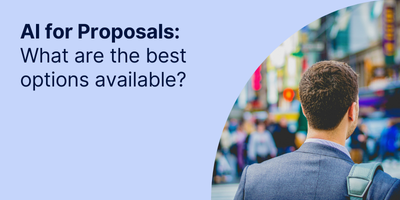



.png)
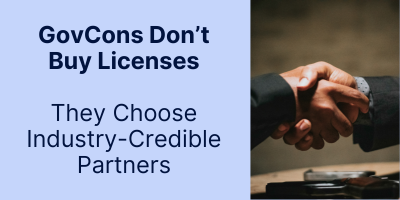
%20(1200%20x%20600%20px).png)
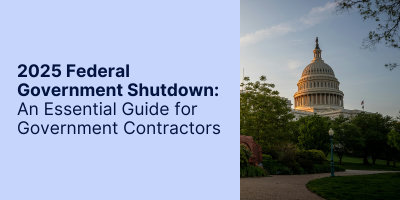
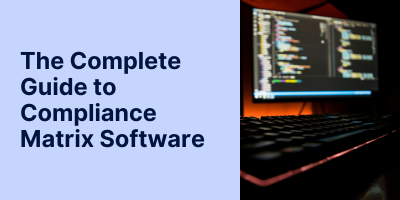
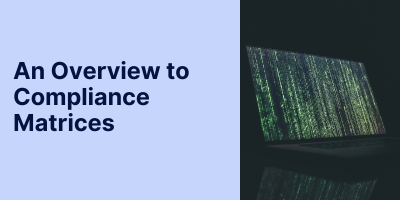
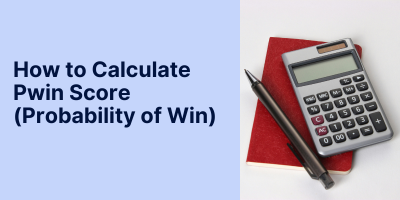
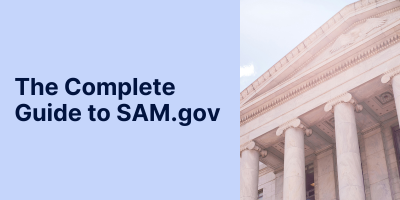
-2.png)
-2.png)
